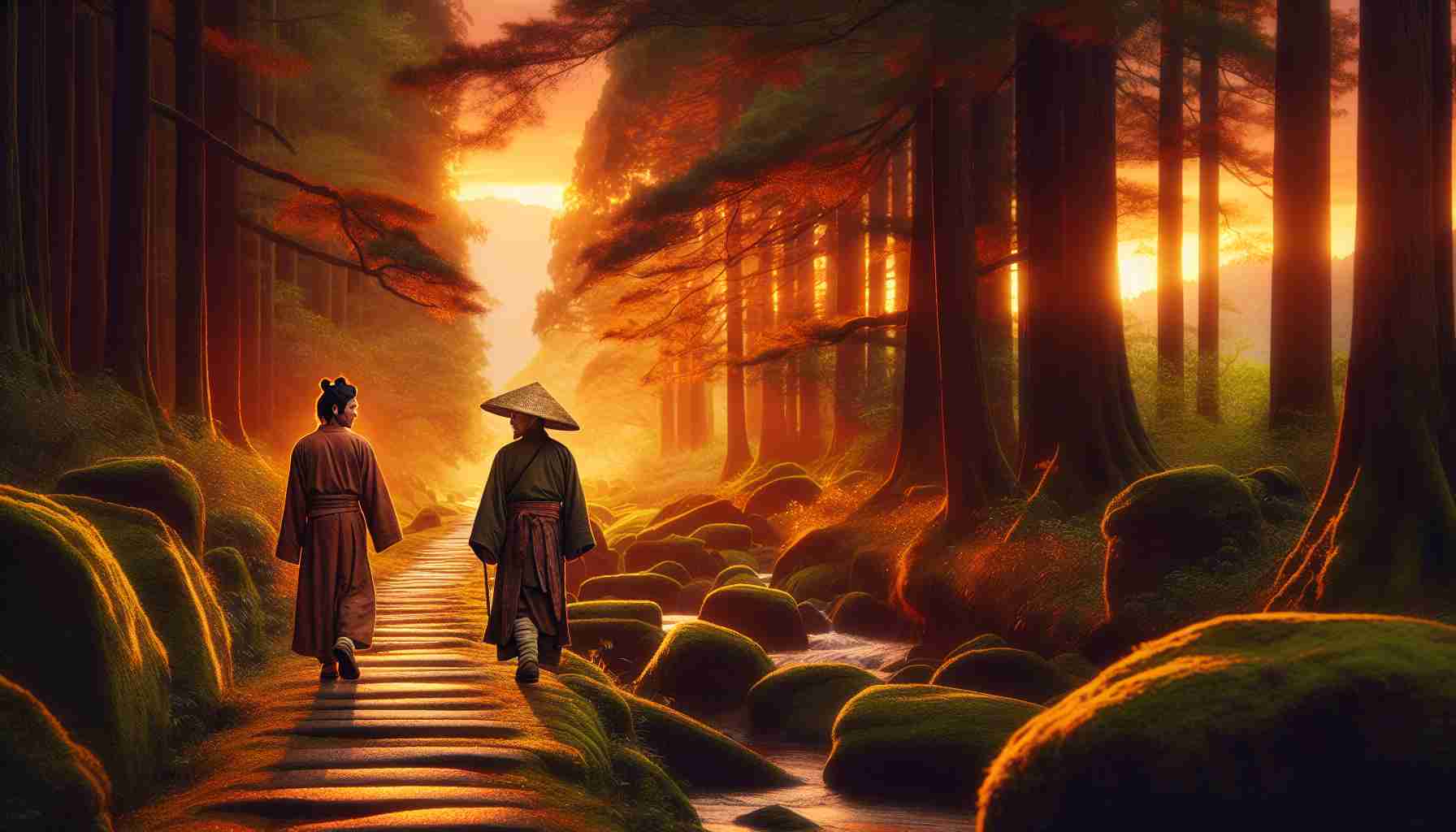

I had always believed success came from pushing harder. That if I wasn’t moving fast, I’d be left behind. I was a merchant’s son, and my father often told me, “The early bird gets the silkworm.” So I rushed through the streets of our village, always busy, always chasing the next good deal.
One evening, while making deliveries beyond the village walls, I took a path through the forest I’d never tried before. It was quieter there—no sounds but the chirping bugs and the wind rustling the leaves. I stopped to rest beneath a tall pine tree when I noticed an old man.
He was walking.
Backwards.
His wide straw hat dipped low as he took careful steps, facing the way he had come.
Curious, I called out, “Sir! Are you lost?”
He didn’t stop. “No,” he said softly. “I walk backward because I don’t need to hurry forward.”
I blinked. That didn’t make any sense. “But doesn’t that make it harder? Don’t you trip?”
“Sometimes,” he nodded. “But isn’t that true when going forward too?”
I frowned. “But what’s the point?”
He smiled gently, motioning for me to walk with him. “Most people rush to catch something they think they need. But rushing often makes you spill what you already have.”
I didn’t fully understand, but I followed—walking backward beside him. It was strange. Slow. I had to feel the path with my feet carefully. I noticed the coolness of the moss, the curve of the stones. Everything was quiet. I was not chasing anything. I was simply… there.
As we walked, he spoke again. “There is a natural way, like the river that flows downstream. When we stop gripping, stop grasping, we begin to see this way. It does not need to be forced.”
His words reminded me of something my father once said but never followed: “Sometimes the best deal is the one you don’t chase.”
“But,” I asked, “what about goals? Shouldn’t we try hard to reach them?”
The old man halted and looked toward the sky. “Trying has its place,” he said. “But trees don’t try to grow—they simply grow. Birds don’t worry about flying—they simply fly. Effortless being. This is called Wu Wei—doing without forcing.”
We reached a clearing. The sun hung low, painting the sky with pink and gold. “This,” he said, “is the Tao—the Way. Always present, always flowing. When you stop running after it, you realize you were already in it.”
He bowed and began walking forward again, disappearing down the winding road.
I stood alone, strangely still. For the first time in a long while, I didn’t feel rushed. I breathed in the dusk and smiled.
That day, I didn’t become wise or perfect. But I began to walk a little slower. I stopped pushing so hard. And when I felt the urge to hurry, I remembered the man walking backward—and the peace in every step.
I had always believed success came from pushing harder. That if I wasn’t moving fast, I’d be left behind. I was a merchant’s son, and my father often told me, “The early bird gets the silkworm.” So I rushed through the streets of our village, always busy, always chasing the next good deal.
One evening, while making deliveries beyond the village walls, I took a path through the forest I’d never tried before. It was quieter there—no sounds but the chirping bugs and the wind rustling the leaves. I stopped to rest beneath a tall pine tree when I noticed an old man.
He was walking.
Backwards.
His wide straw hat dipped low as he took careful steps, facing the way he had come.
Curious, I called out, “Sir! Are you lost?”
He didn’t stop. “No,” he said softly. “I walk backward because I don’t need to hurry forward.”
I blinked. That didn’t make any sense. “But doesn’t that make it harder? Don’t you trip?”
“Sometimes,” he nodded. “But isn’t that true when going forward too?”
I frowned. “But what’s the point?”
He smiled gently, motioning for me to walk with him. “Most people rush to catch something they think they need. But rushing often makes you spill what you already have.”
I didn’t fully understand, but I followed—walking backward beside him. It was strange. Slow. I had to feel the path with my feet carefully. I noticed the coolness of the moss, the curve of the stones. Everything was quiet. I was not chasing anything. I was simply… there.
As we walked, he spoke again. “There is a natural way, like the river that flows downstream. When we stop gripping, stop grasping, we begin to see this way. It does not need to be forced.”
His words reminded me of something my father once said but never followed: “Sometimes the best deal is the one you don’t chase.”
“But,” I asked, “what about goals? Shouldn’t we try hard to reach them?”
The old man halted and looked toward the sky. “Trying has its place,” he said. “But trees don’t try to grow—they simply grow. Birds don’t worry about flying—they simply fly. Effortless being. This is called Wu Wei—doing without forcing.”
We reached a clearing. The sun hung low, painting the sky with pink and gold. “This,” he said, “is the Tao—the Way. Always present, always flowing. When you stop running after it, you realize you were already in it.”
He bowed and began walking forward again, disappearing down the winding road.
I stood alone, strangely still. For the first time in a long while, I didn’t feel rushed. I breathed in the dusk and smiled.
That day, I didn’t become wise or perfect. But I began to walk a little slower. I stopped pushing so hard. And when I felt the urge to hurry, I remembered the man walking backward—and the peace in every step.